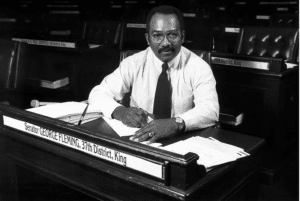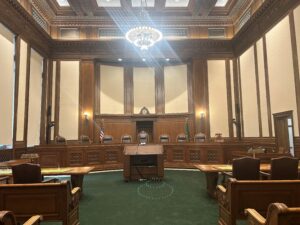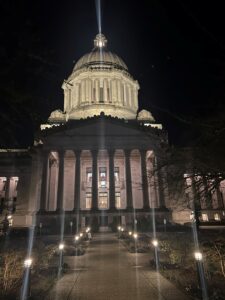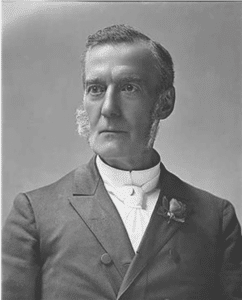
Week Five Awaits!
(Photo Courtesy: Erica Hallock)
Trivia!
Who was the first Black legislator elected to a legislative leadership position and the first Black member elected to both the House of Representatives and the State Senate?
Highlights of the Week
Senate Introduces Bill to Reduce Early Learning Costs
The realities of the state’s budget challenges are becoming clearer with the introduction of SB 5752 (C. Wilson). This bill makes a number of changes to the Fair Start for Kids Act to address the budget crisis while aiming to protect as much of the state’s investments in core early learning programming as possible. You will notice many of the provisions in SB 5752 overlap with components of other bills that have been introduced, signaling these provisions will all be addressed in budget discussions.
Following is a summary of key provisions of SB 5752:
Working Connections Child Care
- Delays income eligibility expansion to 75% of State Median Income from July 1, 2025 to July 1, 2029.
- Delays income eligibility expansion to 85% of State Median Income (subject to appropriation) from July 1, 2027 to July 1, 2031.
- Removes the ability to waive work requirements for applicants or consumers enrolled in a state registered apprenticeship program.
- Repeals expanded eligibility for applicants or consumers enrolled in a state registered apprenticeship program.
- Repeals expanded eligibility for child care employees.
Working Connections Child Care Co-Payments
- Creates a new co-payment structure.
- New co-payment structure applies to new applicants and re-applicants. This means families currently accessing subsidy will change co-pay structures when they are reauthorized after their current 12-month eligibility period.
- The new structure is based on a percentage of the State Median Income for a household of two multiplied by an escalating percentage up to 6.5%. This new structure includes additional co-payments for each additional child in the household.
- The co-payment does not apply to children in child protective services or student parents.
Changes in Program Funding
Makes the following programs Subject to Appropriation:
- Trauma-informed care supports
- Infant early childhood mental health consultation
- Dual language subsidy rate enhancement
ECEAP
- Delays ECEAP entitlement from the 2026-27 school year until the 2030-31 school year
- Repeals the Early ECEAP program
The bill contains an emergency clause so its provisions would go into effect July 1, 2025.
Other Bill Activity
We are at the stage of the legislative sessions where bills are being added and removed from committee schedules daily, so if you want up-to-the-minute information on bills you care about, it is best to sign up for email notifications on the legislative website. It is easy to do! Using the Cost of Quality Care bill as an example, go to SB 5500’s official bill page. On the right-hand side of the page, select the option “get email notifications.” If you click on that option and enter your email address, you will be notified on status changes for the bill.
Check out our bill tracker for a more comprehensive look at the early learning bills moving through the process.
Here’s a look at some of the key activity from this week:
Fair Start for Kids Act Delays Passes Fiscal Committee
On February 12, the House Appropriations Committee passed SHB 1489 (Ormsby). This is the House vehicle to delay components of the Fair Start for Kids Act due to the state’s budget challenges related to income eligibility for Working Connections Child Care and ECEAP entitlement.
The House Appropriations Committee adopted a substitute that added additional components, including:
- Delaying ECEAP entitlement for families at or below 50 percent of the State Median Income adjusted for family size from the 2030-31 school year to the 2034-35 school year.
- Changes from 2032 to 2031 the Working Connections Child Care income expansion for households in the first 12 months of a state registered apprenticeship program and whose household annual income does not exceed 85 percent of the State Median Income if funds are appropriated.
Governor Ferguson Child Care Proposal Gets Hearing
On February 12, the House Early Learning and Human Services Committee heard HB 1919 (Bergquist), Governor’s request legislation related to Working Connections Child Care. As you read this section, you may ask, isn’t this same as HB 1865 (Bergquist) from last week? You would be correct! The content of the two bills are identical. HB 1919 was introduced to correct an issue with the bill title.
HB 1919 contains Governor Ferguson’s plan to expand eligibility for Working Connections Child Care for families where at least one household member is employed by a small business (defined as 50 or fewer employees) and the household income does not exceed 75 percent of State Median Income at the time of application or, if funds are provided, beginning January 1, 2031, does not exceed 85 percent of State Median Income.
The bill also delays implementation of income eligibility provisions included in the Fair Start for Kids Act. Specifically, it delays the expansion of income eligibility from 60 to 75 percent of State Median Income from July 1, 2025 to July 1, 2029. It also delays the next phase of eligibility expansion from 75 to 85 percent of State Median Income from July 1, 2027 to July 1, 2031, pending the availability of funding.
Cost of Quality Care Rate Model Passes Policy Committee
On February 12, the Senate Early Learning and K-12 Education Committee took executive action to approve SB 5500 (Alvarado) with amendments to specify that the provisions related to collective bargaining agreements for family child care providers do not go into effect until July 1, 2027. This clarification was necessary because the current collective bargaining agreement for family child care providers under consideration by the Legislature has already been negotiated and, upon legislative approval, would be in effect until June 30, 2027.
Deemed the “Cost of Quality Care Rate Model,” the bill seeks to modernize the rate-setting tool for child care subsidies in our state. The model was co-created with child care providers, other advocates and the Department of Children, Youth and Families. This new tool is intended to more fully measure and capture the costs of providing quality child care. In recognition of the state’s fiscal situation, the bill is designed to be cost neutral.
Child Care Bills Receive Hearings in Senate Fiscal Committee
On February 10, the Senate Ways and Means Committee held public hearings on SSB 5062 (Stanford) and SB 5130 (C. Wilson).
SSB 5062 would establish a state Childcare Workforce Standards Board to establish minimum employment standards for child care workers, including standards on compensation and other working conditions. Refer to the February 7 edition of “Notes from Olympia” for a detailed summary of the current version of the bill.
SB 5130 would eliminate child care licensing fees and carries a fiscal note of $4.1M to account for the loss of licensing fees to the state’s General Fund.
Neither bill has been scheduled for executive session yet.
Dairy Day!

(Photo Courtesy: Erica Hallock)
A huckleberry ice cream sandwich from Ferdinand’s Ice Cream Shoppe at the WSU Creamery is a perfectly acceptable lunch. Thank you, Washington State Dairy Federation and WSU Creamery for bringing smiles to campus!
DCYF Secretary Nomination Advances to Senate Floor
On February 11, the Senate Human Services held a public hearing to consider the nomination of Tana Senn for Secretary of the Department of Children, Youth and Families. At the hearing, the Committee gave Secretary Senn the opportunity to share about her background and her plans for the agency. Individual committee members asked questions about specific programmatic areas. You can catch the hearing on TVW starting around minute 28:00.
The Senate Human Services Committee voted to approve Secretary Senn’s nomination on February 12. Her nomination will be considered by the full Senate at some point in the near future.
What’s on Deck for Next Week
Policy Committee Deadline
Day 40 of the legislative session brings our first official deadline – policy committee cutoff. This means that all bills must be approved by their respective policy committees.
The next deadline will come quickly after that, with the fiscal committee cutoff scheduled for the following Friday, February 28th. These back-to-back deadlines mean the respective House and Senate fiscal committees will be working the weekend of February 22nd to get through the long lists of bills before them.
Week Six Schedule
On Wednesday night of each week, the following week’s schedule is released and many of us pour over the schedules and plot out the hearing schedules times, lining up testifiers and sign-ins. As I noted above, we are at the stage with cutoffs incoming and amendment negotiations ongoing, the schedule that was released this Wednesday appeared lighter than what I expect. I expect my inbox to fill up with notifications of bills being added (and removed) from hearing schedules.



















